★★
“Editing. It’s a choice.”
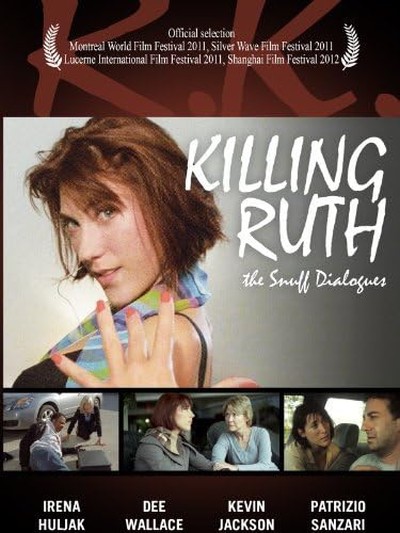 As soon as I saw the running time of this was one hundred and thirty-one minutes, it immediately went onto the back-burner. I have a busy life, and I’ve going to devote close to two and a quarter hours to a low-budget movie, it is going to be when I have a lot of time to spare. My qualms were obvious, and proved very well-founded. This absolutely had no need to be so long. Indeed, it feels like a first draft, which became a shooting script, and everything filmed then ended up in the end product. Entire scenes are superfluous, and those which aren’t could use between “some” and “an oce-lot” of tightening up.
As soon as I saw the running time of this was one hundred and thirty-one minutes, it immediately went onto the back-burner. I have a busy life, and I’ve going to devote close to two and a quarter hours to a low-budget movie, it is going to be when I have a lot of time to spare. My qualms were obvious, and proved very well-founded. This absolutely had no need to be so long. Indeed, it feels like a first draft, which became a shooting script, and everything filmed then ended up in the end product. Entire scenes are superfluous, and those which aren’t could use between “some” and “an oce-lot” of tightening up.
It’s the story of Ruth Keeley (Huljak), who comes home one day to find her father shot dead in his car. She eventually discovers that he had been a hit-man, working for Rod Porter (Jackson), and ends up following into the family business, as it were. On one job in a hospital, she ends up befriending Mrs. Connors (Wallace), the patient in the next bed to her target, and starts sharing her life with the old woman, who offers zero moral judgement. That includes her relationship with long-suffering boyfriend Cameron (Sanzari), and the quest to find out who was behind the death of her father, and why. Which turns out to be exactly who I expected, from about two hours previously.
The idea at its core is not a bad one. There’s something to be said for the idea of an assassin being plain and unremarkable, allowing them to slide past without attracting attention. Ruth is certainly that, being a waitress until her change in career direction, and Huljak is a good choice. She’s incredibly normal, and about as far from the Luc Besson-style of supermodel hit-woman as you can imagine. I’d like to see a film where we have a hitwoman dealing with everyday issues in between violent killing sprees, such as figuring our taxes, or dealing with annoying neighbours. This, however, is more interested in low-key conversations – and by “low-key”, I mean too many scenes which, to borrow a Python quote, wouldn’t “voom” if you put four million volts through them.
Even Wallace, who brings value to everything she’s in, isn’t able to energize things adequately. Not helping: the film brings in ideas, then discards them again, almost at random. For example, Ruth’s late father shows up and talks to her for a bit, then just… doesn’t. Or she gets a mysterious letter from her father’s killer; an angle which the movie forgets about entirely for a good hour, before bringing it back in, semi-randomly, at the end, to try and achieve closure. Long before that point, this had been reduced to the level of background radiation. It was on, and I was in the same room as it. Much more than that, I can’t commit to. But it definitely fails as action, probably as a thriller, and largely as drama too.
Dir: Nicholas Kinsey
Star: Irena Huljak, Dee Wallace, Kevin Jackson, Patrizio Sanzari





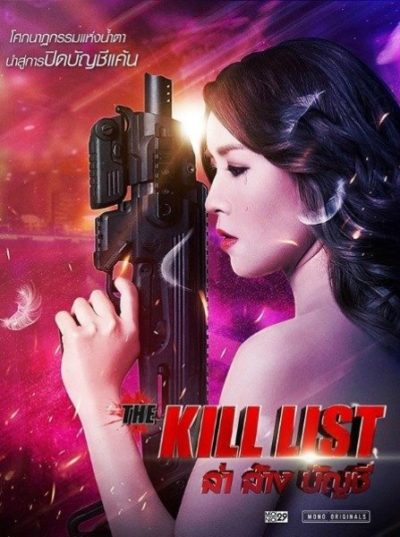 For a TV movie, this is very impressive. When you hear that phrase, I usually think of something which appears on Lifetime or, worse still, Hallmark. But it seems that Thai television is made of sterner stuff. This plays much tougher, more like something you might see on AMC or FX. The story may not be particularly original, but it’s done with enough style and energy to make for more than passable entertainment The heroine is Angie (Rittapinun), an orphan who was brought up by her uncle and trained as an assassin. Her latest mission involves the retrieval of a data chip which contains a list of all the members in the organization of which she’s part. In the wrong hands, it could be disastrous.
For a TV movie, this is very impressive. When you hear that phrase, I usually think of something which appears on Lifetime or, worse still, Hallmark. But it seems that Thai television is made of sterner stuff. This plays much tougher, more like something you might see on AMC or FX. The story may not be particularly original, but it’s done with enough style and energy to make for more than passable entertainment The heroine is Angie (Rittapinun), an orphan who was brought up by her uncle and trained as an assassin. Her latest mission involves the retrieval of a data chip which contains a list of all the members in the organization of which she’s part. In the wrong hands, it could be disastrous.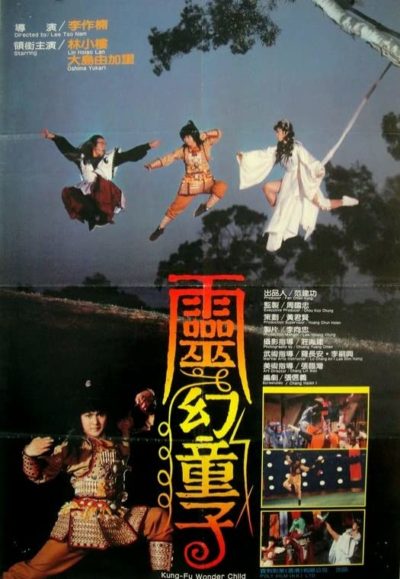 You may have noticed that I’ve been on a bit of a spree with these Taiwanese fantasy-fu flicks of late. However, I think I’m feeling a bit sated with them at this point, and the law of diminishing returns seems to be setting in. There are only so many unconvincing male impersonators, bad effects (both optical and practical) and almost illegible and/or illiterate subtitles a man can take, and I think I’ve reached my capacity in almost of these categories. Fortunately, my queue of such things seems to be nearing an end, with just a couple more to go. Still, after this delirious experience, I feel in need of a week or two’s break from the madness.
You may have noticed that I’ve been on a bit of a spree with these Taiwanese fantasy-fu flicks of late. However, I think I’m feeling a bit sated with them at this point, and the law of diminishing returns seems to be setting in. There are only so many unconvincing male impersonators, bad effects (both optical and practical) and almost illegible and/or illiterate subtitles a man can take, and I think I’ve reached my capacity in almost of these categories. Fortunately, my queue of such things seems to be nearing an end, with just a couple more to go. Still, after this delirious experience, I feel in need of a week or two’s break from the madness. I’ve mentioned before the general lack of action-heroine films for the pre-teenage crowd:
I’ve mentioned before the general lack of action-heroine films for the pre-teenage crowd: 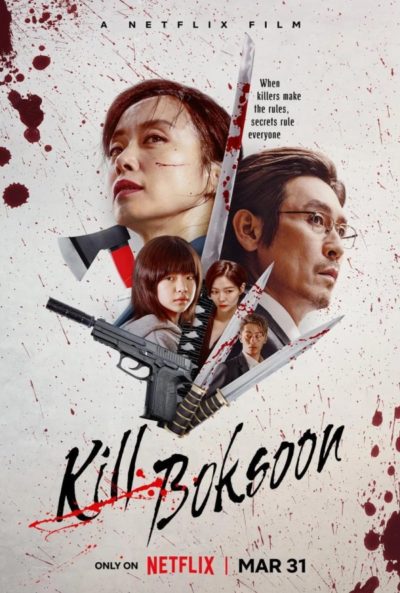 There’s a lot to admire about this South Korean film, though a couple of fumbles stop it from achieving the heights it threatens to do. You’d be forgiven for thinking it’s a knock-off of Kill Bill going by the title. But it’s as much a pun on the name of the heroine, Gil Bok-soon (Jeon). She has been an assassin since she was 17, and has worked her way up to be the top employee of the MK. ENT corporation, run by Cha Min-kyu (Sol). They are one of a number of competing companies offering killers for hire, but to ensure standards, certain common rules have been agreed, e.g. no kids, and are adhered to by all. Well… Kinda…
There’s a lot to admire about this South Korean film, though a couple of fumbles stop it from achieving the heights it threatens to do. You’d be forgiven for thinking it’s a knock-off of Kill Bill going by the title. But it’s as much a pun on the name of the heroine, Gil Bok-soon (Jeon). She has been an assassin since she was 17, and has worked her way up to be the top employee of the MK. ENT corporation, run by Cha Min-kyu (Sol). They are one of a number of competing companies offering killers for hire, but to ensure standards, certain common rules have been agreed, e.g. no kids, and are adhered to by all. Well… Kinda…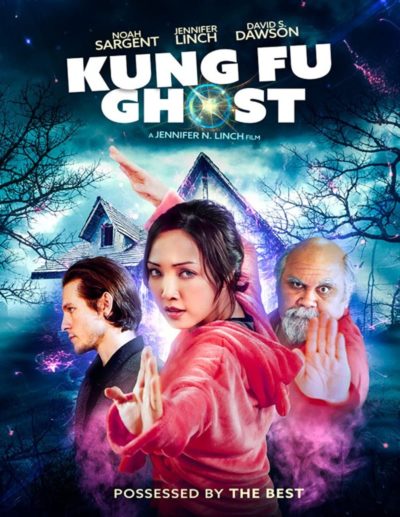 This is another example of someone simply trying to do too much on their movie. For Linch not only starred in, produced and directed this, she also edited it, did the sound design and was the colourist. It’s not hard to predict her talents are not equally divided. It’s a shame, since I really wanted to enjoy this: much like its heroine, there’s a plucky, can-do attitude present, which can only be admired. Unfortunately, anyone above the age of eight is going to be quite hard-pushed to overlook the flaws. While the action is not especially one of those, the volume there is underwhelming, and the romantic, comedic and dramatic elements are hugely variable, to put it politely.
This is another example of someone simply trying to do too much on their movie. For Linch not only starred in, produced and directed this, she also edited it, did the sound design and was the colourist. It’s not hard to predict her talents are not equally divided. It’s a shame, since I really wanted to enjoy this: much like its heroine, there’s a plucky, can-do attitude present, which can only be admired. Unfortunately, anyone above the age of eight is going to be quite hard-pushed to overlook the flaws. While the action is not especially one of those, the volume there is underwhelming, and the romantic, comedic and dramatic elements are hugely variable, to put it politely.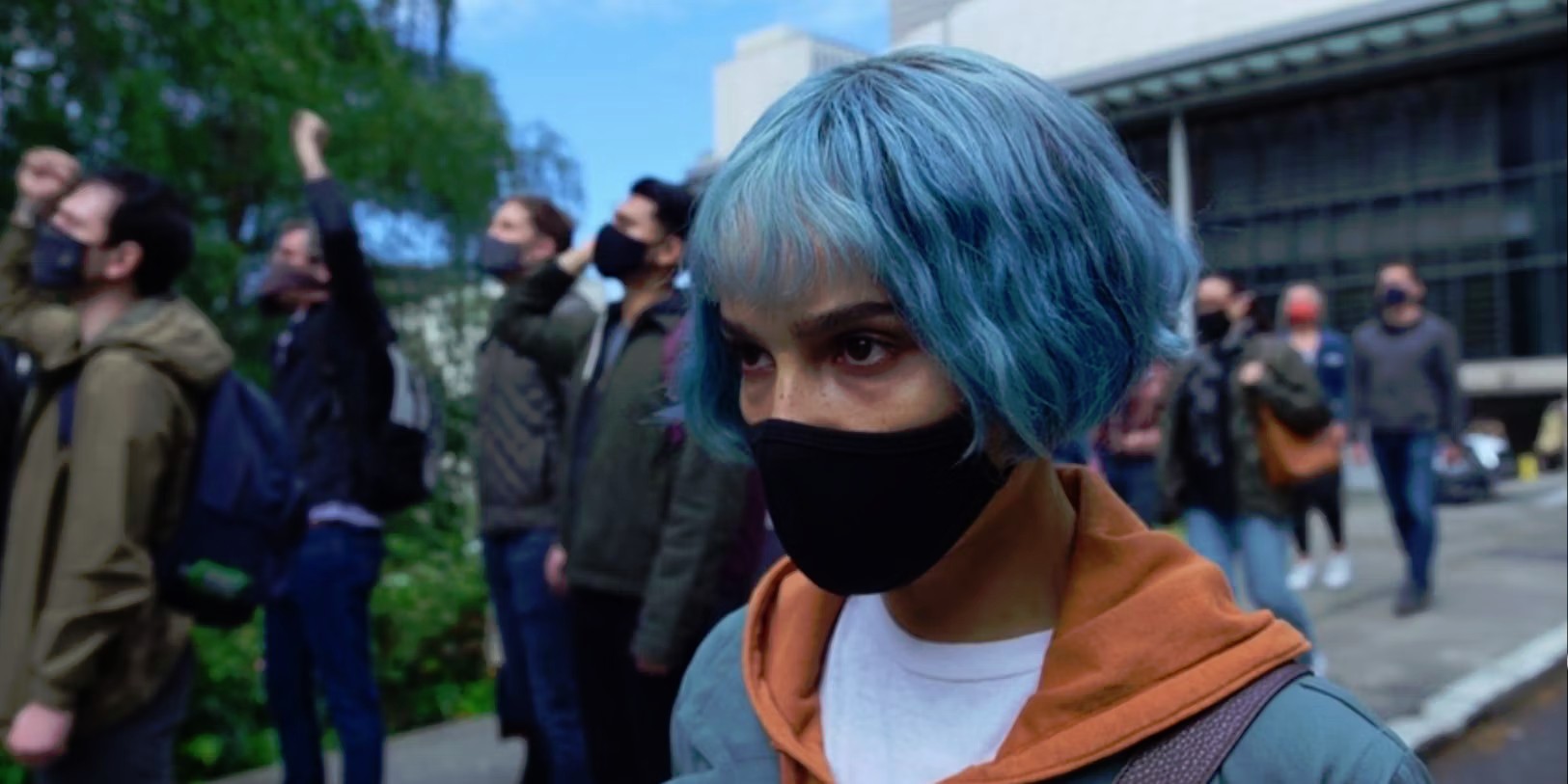 ★★★
★★★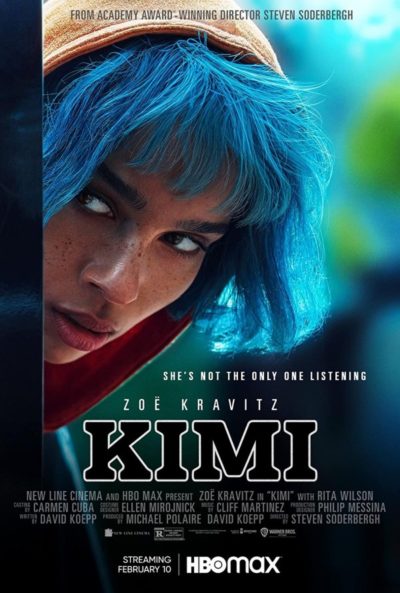 Kimi indirectly discusses this attitude, but also seems to make a clear point that there is a need to leave your own four walls sometimes, because not everything can be handled from your laptop. That said, it’s quite disturbing how much
Kimi indirectly discusses this attitude, but also seems to make a clear point that there is a need to leave your own four walls sometimes, because not everything can be handled from your laptop. That said, it’s quite disturbing how much 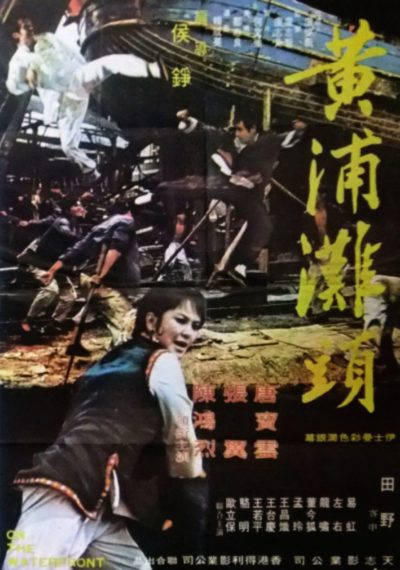 Yeah, I think if I’d seen this under the alternate title of On the Waterfront, I might well have passed it by. Though that is probably a slightly more accurate description of the contents here, even allowing for the complete absence of Marlon Brando. [At least we didn’t have to deal with the expectations set by the Italian title, which translates as “The merciless hand of Bruce Lee strikes again”!] It takes place around the Whampoa wharves in Shanghai, where various crime families are jostling for position and control, with varying degrees of morality e.g. whether or not they approve of drugs and/or sex trafficking as a means to make money. Particularly of note here are Red Rose (Tang) and Zhou (Chang), who eventually end up allies against their common enemy (Chen).
Yeah, I think if I’d seen this under the alternate title of On the Waterfront, I might well have passed it by. Though that is probably a slightly more accurate description of the contents here, even allowing for the complete absence of Marlon Brando. [At least we didn’t have to deal with the expectations set by the Italian title, which translates as “The merciless hand of Bruce Lee strikes again”!] It takes place around the Whampoa wharves in Shanghai, where various crime families are jostling for position and control, with varying degrees of morality e.g. whether or not they approve of drugs and/or sex trafficking as a means to make money. Particularly of note here are Red Rose (Tang) and Zhou (Chang), who eventually end up allies against their common enemy (Chen).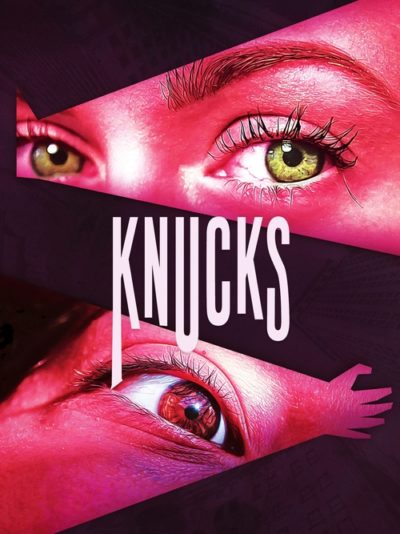 I’m tempted to leave my review at that. But there’s a famous quote by critic Roger Ebert, going off on Bruce Willis flop, North: “I hated this movie. Hated hated hated hated hated this movie. Hated it. Hated every simpering stupid vacant audience-insulting moment of it. Hated the sensibility that thought anyone would like it. Hated the implied insult to the audience by its belief that anyone would be entertained by it.” I was always impressed, and hoped one day to find a film capable of producing a similar reaction. This is… close. It is, let’s be clear, utterly terrible, with almost no redeeming qualities. Yet it’s either not bad enough, or more likely, too bad to generate such a reaction. That would be giving it more power and credit than this deserves.
I’m tempted to leave my review at that. But there’s a famous quote by critic Roger Ebert, going off on Bruce Willis flop, North: “I hated this movie. Hated hated hated hated hated this movie. Hated it. Hated every simpering stupid vacant audience-insulting moment of it. Hated the sensibility that thought anyone would like it. Hated the implied insult to the audience by its belief that anyone would be entertained by it.” I was always impressed, and hoped one day to find a film capable of producing a similar reaction. This is… close. It is, let’s be clear, utterly terrible, with almost no redeeming qualities. Yet it’s either not bad enough, or more likely, too bad to generate such a reaction. That would be giving it more power and credit than this deserves. 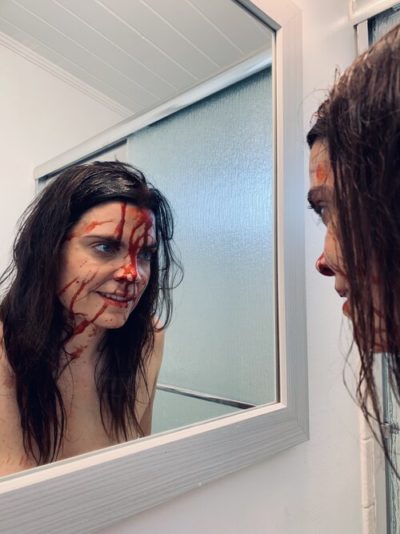 At least a star of the above rating is purely for the concept, which is one just brimming with potential. The problem here is entirely down to execution that isn’t just lacklustre, it’s entirely devoid of
At least a star of the above rating is purely for the concept, which is one just brimming with potential. The problem here is entirely down to execution that isn’t just lacklustre, it’s entirely devoid of